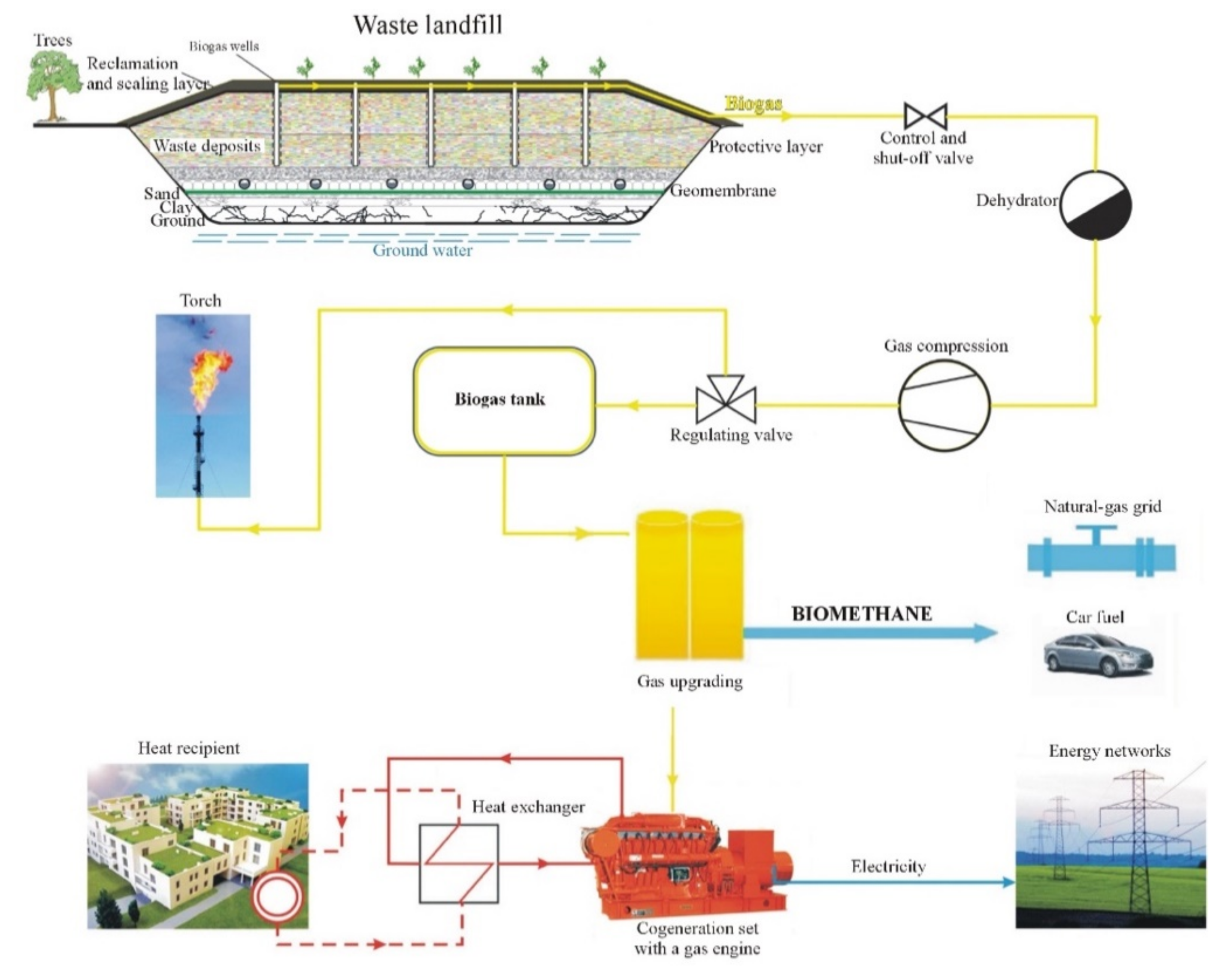The necessity of a drastic change in our habits and a more sustainable use of the resources at our disposal are the principal goals of every country in these difficult years, signed by a profound change in climate, economic and social effects of the global issues. In order to reduce the importation and use of fossil fuels, accelerating also the energy transition, is possible to develop a new plan for the realization of bio-methane power plants especially in these zones of the Polish lands with a high percentage of agrocultral waste and municipal waste production.

Nowadays in Poland most of the existing biogas power plants are situated near large animal farms with the organic waste like first primary resource. According to the studies of the Laboratory of Biogas Research and analysis, and the Faculty of Chemistry of T ruń, most of the biomethane is actually produced in Mazowieckie Voivodeship (178 mln m3), Podalskie Voivodeship (120 mln m3) and Wielopolskie Voivodeship (238 mln m3) with the 50% of waste that come from agriculture (crops). These regions are the most populated and exploited territories of the country.
The IRENA (International Renewable Energy Agency) studies have shown that the total BM (bio-methane) installations in Europe can produce more than 50 PJ/year of energy, saving an equivalent of 13 billion liters of diesel. This is leading to the question – how a small growth of biomethane plants distributed in specific zones of the country, can help with reduction of the fossil fuels dependency.These interventions should be made especially in these regions with a low population density, where people used to exploit fields for the food production and animals breeding but they do not have the possibility of making the most of the waste. New power plants in these zones could be helpful for the production of electricity, heat or cogeneration, in order to save resources and covering the demand of the same agricultural and farms activities.

In the most populated zones it is possible to produce, as it has been already happening, biomethane from municipal waste, that in Poland are historically destined for landfill sites. Thanks to the studies of the previously cited research centers it has been estimated that, starting with the municipal waste of the most populated regions, it is possible to produce approximately 171.7 mln m3 of biomethane every year. What is more, biogas production should be really considered as one of the solutions for increasing the Polish energy independency, expanding diversity of Polish energy sources sector and a possibility for the reduction of the carbon footprint.
Full article: Biomethane in Poland—Current Status, Potential, Perspective and Development
